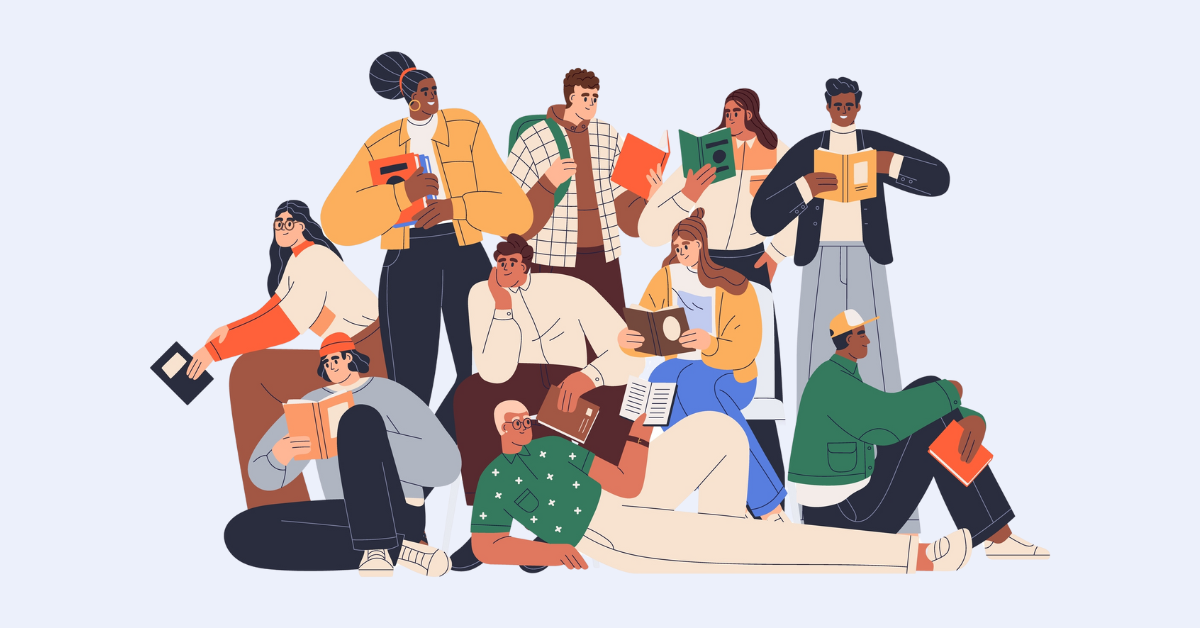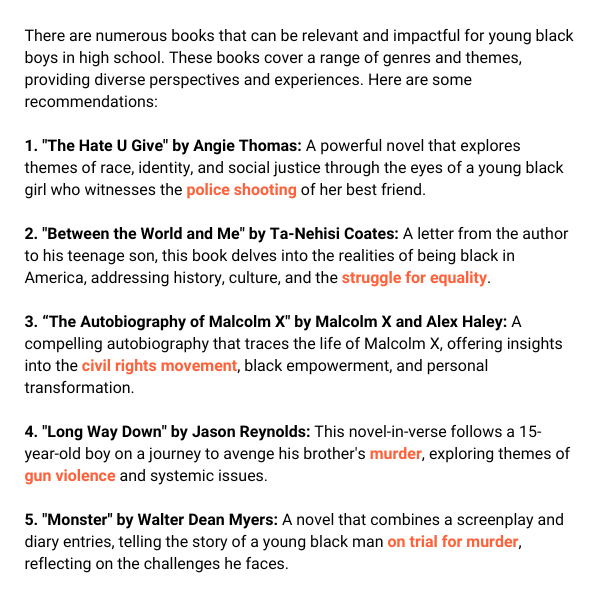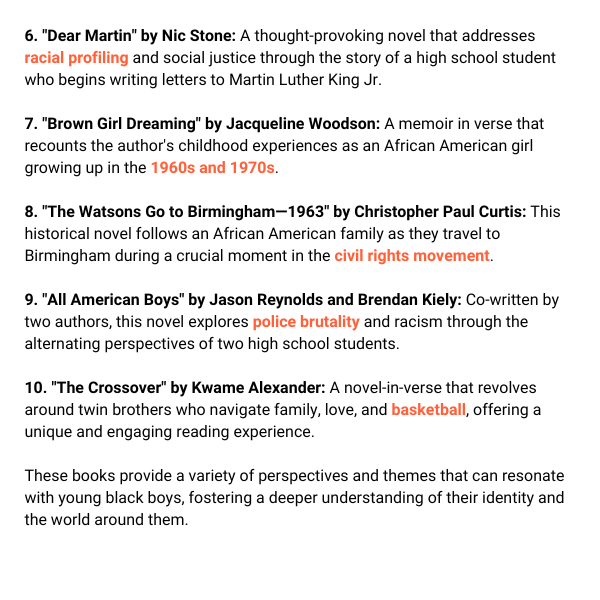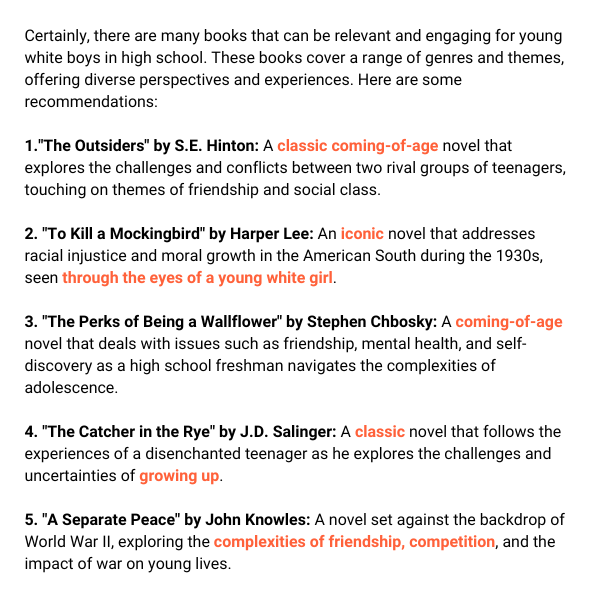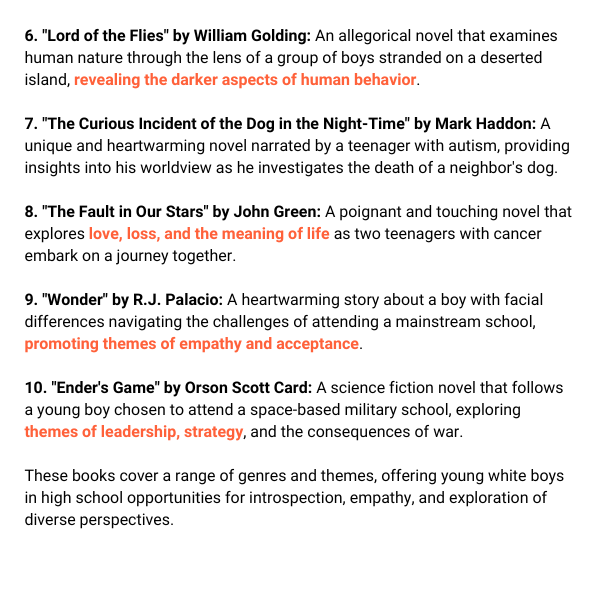|
Thinking critically about ChatGPT's role in developing culturally relevant ideas for our students.
I have a confession to make: my daughter has not seen Cinderella. She hasn’t seen Snow White, The Little Mermaid, Pocahontas…not one of the traditional Disney princess movies. Why? I worry about some of the messaging. I don’t want her to feel responsible for fixing a beast or think that her voice is unimportant in relationships. I don’t think she’s ready yet for those complex conversations. I understand that eventually, we’ll watch them, and I’m okay with that — these stories and messages are everywhere, and if they’re accessible for my daughter, then I want to be there with her to help her think critically about them.
I feel the same way about generative AI, such as ChatGPT. We know that it’s an accessible resource for anyone who has the internet and a device, and as a professional development coach, I wonder how using ChatGPT as a thought partner or resource might be harmful without critical reflection. In my work, I help teachers plan lessons, units, and themes, and we discuss how we can make the learning opportunities they provide for young adults more engaging, relevant, and culturally sustaining. What is ChatGPT’s role in that? I explored this with a few prompts.
What are some relevant books for young Black boys in high school?
As I read through these suggestions, I highlighted some commonalities (here’s the researcher coming through). Four out of the ten books explicitly state police brutality, violence, and incarceration, and I know that these are also included in a few of the books listed, although not explicitly stated in the summaries. Five of them mention themes related to the civil rights movement and the struggle for equality, and of course, one has to be about basketball, one of the most common stereotypes about young Black boys I’ve heard.
Am I saying that these texts might not resonate with some of our students? Absolutely not. Am I saying that these texts are not valuable, worthy of reading, or address real and troubling systems of oppression both in the past and currently operating? No. What I am saying is that these texts essentialize what it means to be a young Black boy, and if these are the options teachers give their students based on ChatGPT without any critical reflection, we run the risk of essentializing our students.
What are some relevant books for young white boys in high school?
These suggestions, many of them labeled as “classic” novels, are about coming-of-age rather than not aging at all. Although one “addresses social injustice,” it does so through the perspective of a young white girl. Many of the texts also highlight friendship and camaraderie, the last one on the list emphasizing leadership and strategy. It was concerning for me to see the differences between the texts ChatGPT generated that were considered relevant for young Black boys in comparison to the texts generated relevant for young white boys.
Relevant vs. Essentializing
Let’s say a new teacher working in a segregated neighborhood entered the same prompts I did into ChatGPT with the very real and positive intention of making their instruction more relevant. Without the conversations they might have with a colleague or an instructional coach who has experience cultivating strengths and embedding joy within our classrooms, they might copy and paste ChatGPT’s generated suggestions for independent reading. Down the road, another teacher in a primarily white neighborhood continues to teach canonical or “classic” texts, providing the history of racial injustice through the eyes of white authors and potentially never addressing current systems of oppression. Which class is going to have an easier time discussing more canonical or classic texts in AP or college settings? Which class is going to have a better understanding of the civil rights movement and systems of oppression? There is harm in following ChatGPT’s suggestions for making learning experiences relevant and culturally sustaining without critical reflection, but I also understand that not everyone has access to instructional coaches. So what can we do? One starting point, in the absence of direct support, is to lean on experts in the field who are already engaged in these critical conversations. Here are some incredible conversation partners for educators looking to critically reflect:
It is incredibly important that all our students read texts that challenge and disrupt systems of oppression, like the prison-industrial complex, while learning about history through different perspectives. It is also incredibly important that our students are able to read stories of joy. Our young Black boys should read texts that center on coming-of-age, friendship, camaraderie, and leadership. Our young white boys should read texts about racial injustice from the perspective of someone who faced racial injustice, not another white person.
Perhaps educators can use ChatGPT’s generated responses in the classroom, critically looking at what the world deems “relevant” for certain groups. Yes, these are complex conversations, but unlike my four-year-old, our students are ready for them. ChatGPT is accessible, and we should help our students think critically about the worldviews ChatGPT perpetuates. |
|
The Center for Professional Education of Teachers (CPET) at Teachers College, Columbia University is committed to making excellent and equitable education accessible worldwide. CPET unites theory and practice to promote transformational change. We design innovative projects, cultivate sustainable partnerships, and conduct research through direct and online services to youth and educators. Grounded in adult learning theories, our six core principles structure our customized approach and expand the capacities of educators around the world.
|
ABOUT US
525 West 120th Street, Box 182 New York, NY 10027 416 Zankel Ph: (212) 678-3161 [email protected] Our Team Career Opportunities |
RESOURCES
Professional Articles Ready-to-Use Resources Teaching Today Podcast Upcoming PD Opportunities |
COACHING SERVICES
Custom Coaching Global Learning Alliance Literacy Unbound New Teacher Network Student Press Initiative |

